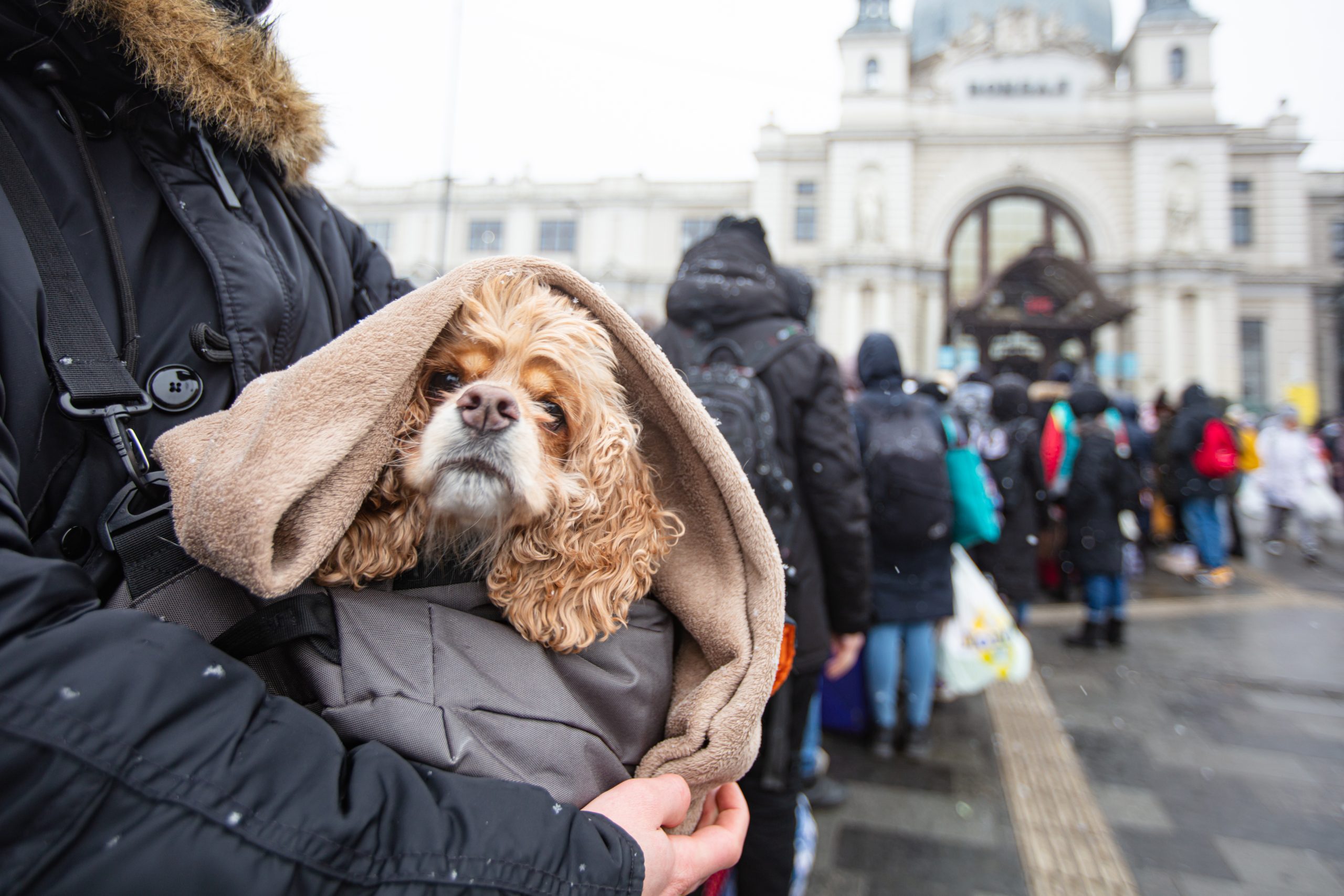By Isabelle Bouchard
For the past three weeks, I have been hungry for information on the Russian invasion of Ukraine. I’m not quite sure I fully understand how it affects me; but I’ve been so concerned about the people of Ukraine, feeling for their wounded hearts and bodies, I am doing what I can to help. I’ve donated to Canadian Red Cross Ukranian humanitairian crisis appeal and I will continue to look for ways to do more.
I’ve also wondered how Canada, my family, my friends, my neighbors’ lives will be affected – collaterally or directly. (We often end up worrying about ourselves when the situation is serious; it’s ok, we’re only human.)
For the last three weeks, I’ve had a different stress then the COVID one, which had started to recede as the world started opening a bit. Replacing it, courtesy of Mr. Putin, has been a renewed anxiety as I’ve envisioned all sorts of worst-case scenarios. It’s an anguish I know many people share.
Until recently, we understood that the entire world was impacted by the pandemic’s effect on supply chain disruptions making everything cost more, everywhere. Russia’s invasion of Ukraine is prompting even more speculation that the price of raw materials is likely going to shoot up, with all western countries’ populations the hardest hit. Already we’re seeing gas prices soaring to record levels. What’s next?
Three weeks ago, freedom had a very different feel. We had almost forgot how fragile freedom is, how important it is to nurture it. However, the situation in Ukraine has captured the Western world’s attention largely due to the fear of Putin as an irrational dictator that threatens freedom like few can – even bringing the old nuclear fear back.
At the same time, I can’t help but feel for the people of Russia, who have been manipulated, exploited, deceived, and mistreated by their government for so long, especially with respect to this invasion. In short, their young democracy has been betrayed by their dictatorial, corrupt Putin-led regime. In 1993, its constitution declared Russia a democratic, federalist, law-based state. Six years later the Putin-era began and Russia has been in decline ever since and hopes for a true democracy have been dashed.
Three weeks ago, food waste was a real problem here. And it still is. We should all be careful of the waste we produce – if only out of respect for those who do not have as much we do.
I’ve been struck by images of people who, three weeks ago, had food in the fridge, a roof over their heads, a job to go to, and a family to care for, huddled into metro stations that have become makeshift bomb shelters. We can lose our comforts in an instant and we shouldn’t take our abundance for granted. Ukrainians had a normal life before Russia invaded them; they are fighting to get it back.
So much has changed in three weeks. But we’ve all been living through a very difficult two years. Many Canadian families have struggled with money through the COVID period. Many are living on the edge or falling behind. And knowing that it’s only going to get worse as life gets more expensive is gut-wrenching. Our government should not forget that and provide relief for Canadians most in need.
I almost can’t help myself from keeping the TV on. Watching the news keeps me informed but also connected in tough times. It was the same at the start of the pandemic, too. And just like at the beginning of the pandemic, I have felt an even greater need to be close to the people who are important to me. (Some of them are people I haven’t seen in a long time because of COVID.) Now, I want to feel connected to Ukrainians and other Westerners.
Many of us may just experience the invasion economically. World markets are so integrated, we will absolutely feel the effects on our wallets. Three weeks in and we already are for gas and raw materials.
How will it affect us at the kitchen table? Our farmers? Our processors of food and goods? Our exporters? Our importers? What do the uncertainties mean?
With food prices rising, the cost of gas soaring, and supply chains under stress, do families need to fear there’s a coming war on our plates?
We will strive to get some answers in a special series we are preparing for you over the coming days and weeks.
We will feature insights from people who have experience, expertise, and interest about these questions and others about how this war will affect us in Canada.
We will try to make some sense of all this. And right now, when everything seems so senseless, that’s maybe the best any of us can ask for.

